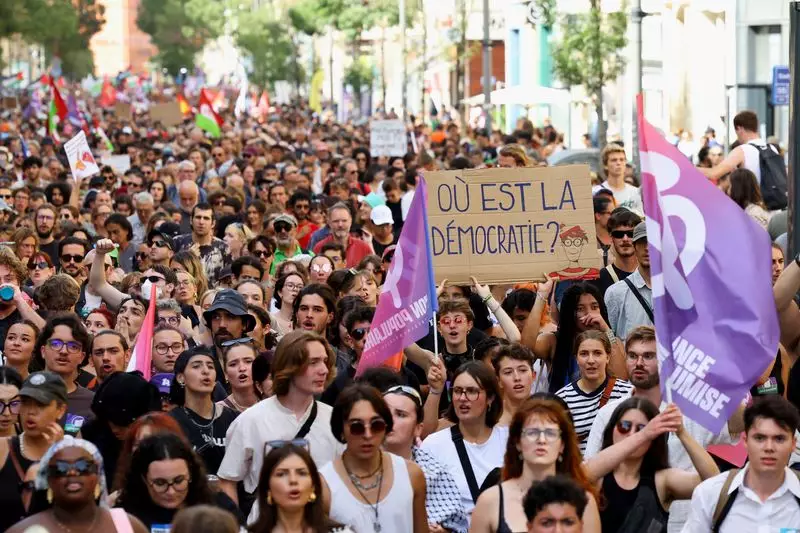President Emmanuel Macron’s decision to appoint centre-right Michel Barnier as prime minister has sparked outrage and protests across France. Thousands of people took to the streets to demonstrate against what left-wing parties are calling a theft of legislative elections. Macron’s choice of the 73-year-old conservative Barnier, who previously served as the EU’s Brexit negotiator, has raised concerns about the legitimacy of the government.
The left, led by the far-left France Unbowed (LFI) party, accuses Macron of denying democracy and essentially stealing the election by appointing Barnier. The refusal to select the candidate of the New Popular Front (NFP) alliance, which had come out on top in the July vote, has further fueled the controversy. A survey revealed that a majority of the French population viewed Macron’s actions as disregarding the election results, with many believing that he had manipulated the outcome.
With a parliament divided into three blocs and no clear majority for the government, Prime Minister Barnier faces the challenging task of implementing reforms and navigating the 2025 budget. France is under pressure from the European Commission and bond markets to reduce its deficit, adding to the complexity of the situation. The appointment of Barnier, whose centre-right party is only the fifth bloc in parliament, has raised concerns about the stability of the government.
The left-wing parties, unions, and student bodies have called for mass protests and potential strikes in response to Barnier’s appointment. The NFP and the far-right National Rally (RN) hold a majority in parliament and could potentially pass a no-confidence vote to oust the prime minister. However, the RN has expressed conditional support for Barnier, making them a significant player in the political landscape. The situation remains tense as consultations continue and the draft budget for 2025 is set to be discussed in parliament.
The political turmoil in France reflects a deep divide and lack of consensus on the direction of the government. Macron’s controversial appointment of Barnier has generated widespread criticism and skepticism about the legitimacy of the government. The upcoming weeks will be crucial in determining the stability and effectiveness of the new administration amid growing social unrest and opposition from various political factions.

